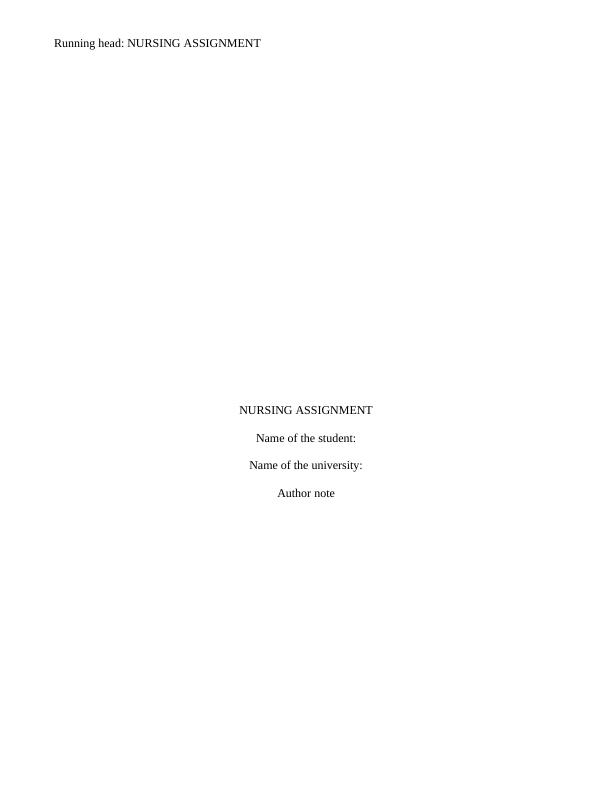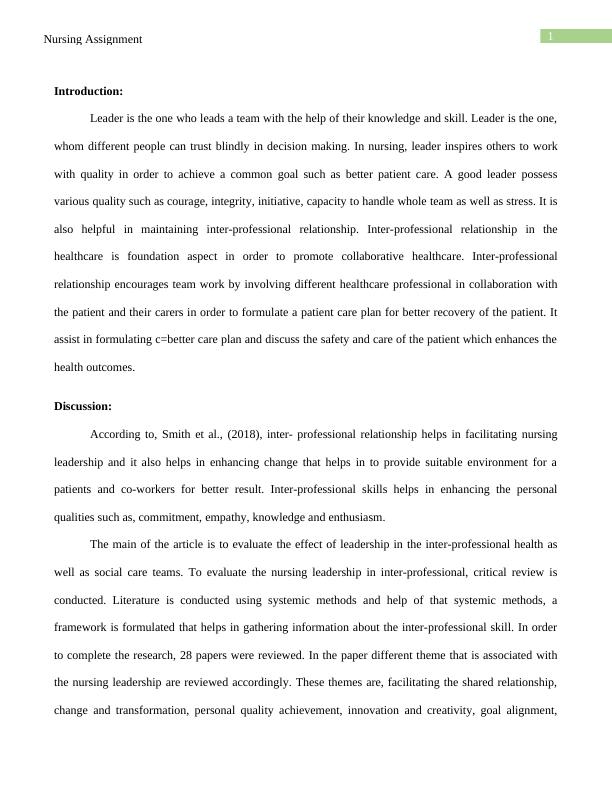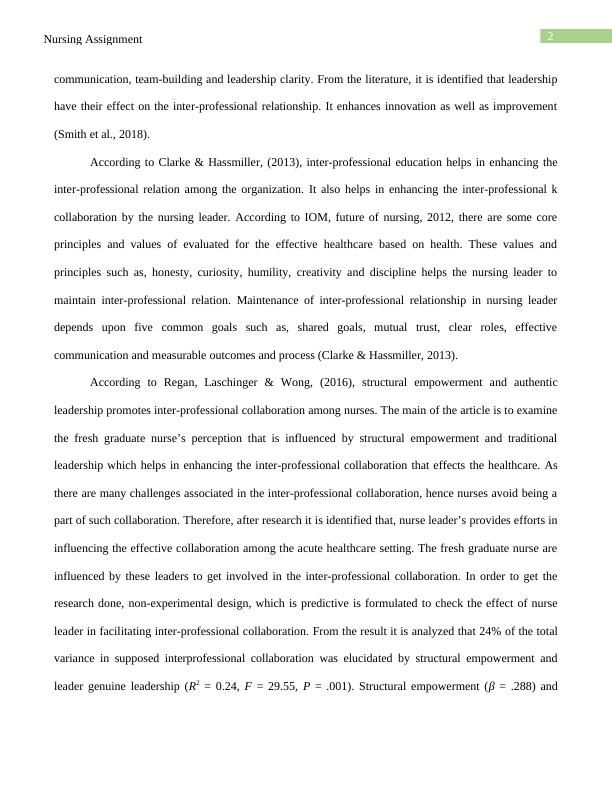Enhancing Nursing Leadership Skills for Interprofessional Collaboration
8 Pages2289 Words74 Views
Added on 2023-01-23
About This Document
This assignment discusses the importance of nursing leadership in forming interprofessional collaboration in healthcare settings. It explores strategies for enhancing nursing leadership skills, such as effective communication, lifelong learning, getting involved, and monitoring. The essay concludes that being a good nurse leader is crucial for successful interprofessional collaboration.
Enhancing Nursing Leadership Skills for Interprofessional Collaboration
Added on 2023-01-23
ShareRelated Documents
End of preview
Want to access all the pages? Upload your documents or become a member.
Nursing Leadership and Inter-professional Collaboration
|11
|992
|24
Nursing Research: Facilitated Discussion
|4
|593
|15
Importance of Nursing Leadership and Teamwork in Healthcare
|8
|1795
|40
Leadership and Effecting Change in Public Health
|20
|4795
|283
Inter-Professional Teamwork in Aged Care: iCARE Components
|6
|1291
|390
Impact of Effective Leadership on Healthcare Quality and Interdisciplinary Collaboration in Health Care
|4
|888
|500



